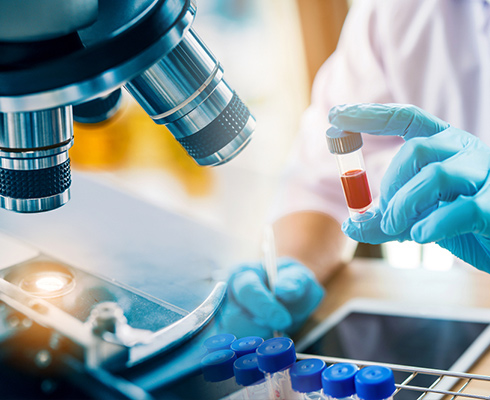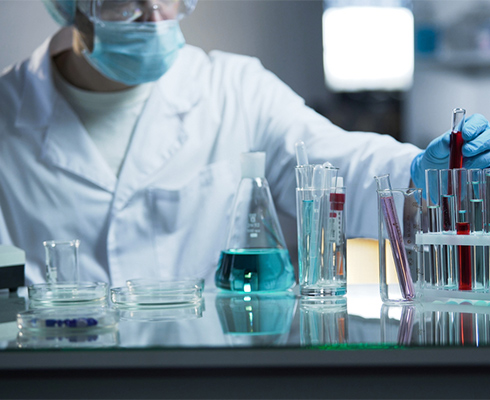A medical laboratory technician might not be seen by patients as they play their part behind the scenes. The professionals determine the absence or presence of any disease and pave the way for a holistic diagnosis and treatment approach. Additionally, The U.S. News and World Report rank the profession as the eighth best healthcare support job, owing to their excellent job outlook and flexible and stress-free work schedule.
Moreover, for all those looking forward to pursuing their career as a medical laboratory technician, here’s where you’ll find all your answers. From a medical laboratory technician’s salary to job opportunities, we’ll elaborate on everything in the blog. Furthermore, the article will also guide you through different medical laboratory technician programs and certifications that will facilitate your career.
What is a Medical Laboratory Technician?
Medical laboratory technicians (MLT) are the backbone of any healthcare industry. Also known as clinical laboratory technicians, the professionals participate in diagnosing a variety of diseases. Additionally, Medical laboratory technicians leverage several specialized medical instruments, tools, and technologies to analyze a patient’s specimen. By doing so, they provide information that renders it easier for physicians and clinicians to make the correct diagnosis.
How to Become a Medical Laboratory Technician?
To traverse the path as a medical lab technician (MLT), you need to follow the following steps:
- Obtaining a high school diploma– firstly, to start with, you will have to obtain a high school diploma in either biology, chemistry, or mathematics.
- Gain an associate degree– secondly enroll in an accredited medical lab technician (MLT) program. You will be offered an associate degree in medical laboratory technician. Just make sure that the MLT program is accredited by a recognized accrediting agency. These programs usually take around 1-2 years to complete.
- Clinical training– furthermore, some accredited MLT programs require you to complete a specific span of training sessions under professional supervision. This training would prove beneficial in your practical career as you have hands-on experience.
- Certifications– alternatively, certification requirements vary from state to state, but gaining a professional certification is highly recommended. Two prominent certifications are ASCP (American Society for Clinical Pathology) and AAB (American Association of Bioanalysts).
- License– the necessity of a license differs according to state. Check for the license requirements according to your locality.
- Job search– after completing the educational requirements, certifications, and licenses, it’s time to start job hunting. Therefore, look for job openings in hospitals, clinics, research laboratories, or other healthcare facilities.
Your job search might lead to an interview. Here are some job interview secrets every healthcare professional should know. - Continuing Education– Lastly, MLT is an ever-advancing field. So, you need to stay updated with the ongoing transformations in the healthcare industry. Continuing education and attending workshops and seminars are the prerequisites. This will help you maintain your skills and knowledge throughout your career.
What is it Like to be a Medical Laboratory Technician?
To be a medical laboratory technician is to subject yourself to a profession that performs complex analyses and evaluations. So, as a medical technician, you will leverage your expertise, training, and knowledge to make accurate decisions.
However, in addition to analyzing samples and performing different biochemical tasks, there’s much more to a medical technician’s requirements, work scope, and duties. They work in different environments and are capable of mastering various professional skills, all of which we will discuss below.

Medical Laboratory Technician: Their Role and its Requirements
A medical laboratory technician works under the supervision of a medical technologist. Under their administration, technicians leverage cutting-edge tools, technologies, and manual techniques to:
- Examine specimens, including body fluids, tissues, and cells.
- Identify different pathological microorganisms.
- Inspect and analyze the chemical balance in body fluid samples.
- Discover blood-clotting abnormalities.
- Additionally, regard blood fit for transfusion through crossmatch.
- Evaluate drug levels in the blood to determine a drug’s efficacy.
- Moreover, analyze test results and interpret them for clinicians and physicians.
Make the Next Move as a Medical Laboratory Technician
The U.S. Bureau of Labor Statistics expects the profession to generate over twenty-five thousand job openings annually, on average, over a decade. However, where do you find these career opportunities according to your shift preference, experience, and salary expectations? The answer is simple; you seek them at HealthCareTalentLink (HCTL).
Conclusion
HealthCareTalentLink (HCTL) is a professional platform that links the healthcare community with its talent, products, and services. It transcends beyond the categorization of clinical and non-clinical professions but accommodates every individual and organization that is prominently and remotely related to the healthcare sector.
So, whether you are a job seeker or an organization looking forward to recruiting clinical, non-clinical professionals, or ancillary service providers, join HealthCareTalentLink to find your next lead.


